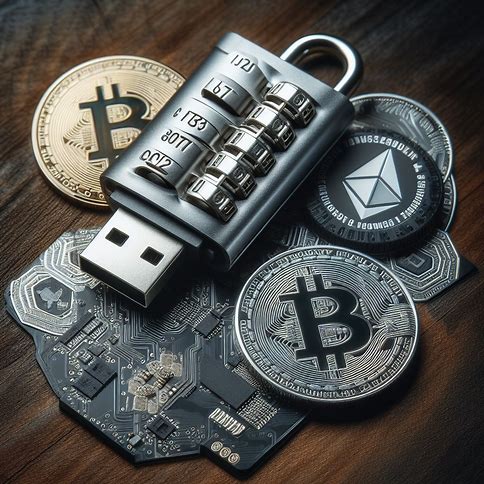Losing ones life savings in a matter of seconds and it’s something no one wants to face ever in life, but truth be told, it’s a reality for many cryptocurrency investors who have fallen victim to hackers. Here is how to protect your cryptocurrency from hackers.
The Importance of Secure Wallets
One of the most critical aspects of protecting your cryptocurrency is choosing a secure wallet. Hardware wallets, such as Ledger or Trezor, offer the highest level of security by storing your private keys offline. These physical devices prevent hackers from accessing your funds through the internet. If you prefer the convenience of a software wallet, opt for reputable options like MyEtherWallet or Exodus. Always download wallets from official sources and keep your software updated to patch any security vulnerabilities.
1. Enable Two-Factor Authentication (2FA)
Two-factor authentication adds an extra layer of security to your accounts. In addition to your password, 2FA requires a second form of verification, such as a code sent to your phone or generated by an app like Google Authenticator. Most reputable cryptocurrency exchanges and wallets offer 2FA. Enable this feature on all your accounts to make it significantly harder for hackers to gain unauthorized access.
2. Use Strong and Unique Passwords
Weak passwords are an open invitation for hackers. Ensure that you use strong, unique passwords for each of your cryptocurrency accounts. A strong password should include a mix of uppercase and lowercase letters, numbers, and symbols. Avoid using easily guessable information like birthdates or pet names. Consider using a password manager like LastPass or 1Password to generate and store complex passwords securely.
3. Beware of Phishing Scams
Phishing scams are a common tactic used by hackers to steal sensitive information, including login credentials and private keys. These scams often come in the form of emails, fake websites, or social media messages that appear to be from legitimate sources. Always double-check the URL of any website before entering your login details. Look for the secure “https” prefix and the correct spelling of the domain name. Never click on links or download attachments from untrusted sources.
Related: Tokenization Of Real-World Assets For Increased Liquidity
4. Keep Your Private Keys Private
Your private keys are the secret codes that give you access to your cryptocurrency funds. It is crucial to keep these keys safe and private. Never share your private keys with anyone, and avoid storing them on devices connected to the internet. If you must write down your private keys, store them in a secure location like a safe deposit box or a fireproof safe. Consider using a cryptographic technique called Shamir’s Secret Sharing to split your private keys into multiple parts, requiring a certain number of parts to reconstruct the original key.
5. Regularly Update Your Software
Hackers often exploit vulnerabilities in outdated software to gain access to systems and steal funds. To minimize this risk, ensure that you keep your operating system, antivirus software, and cryptocurrency wallets up to date with the latest security patches and upgrades. Enable automatic updates when possible, or set reminders to check for updates regularly.
6. Use Reputable Exchanges and Services
When buying, selling, or trading cryptocurrencies, it’s essential to use reputable exchanges and services. Research the company’s history, user reviews, and security measures before entrusting them with your funds. Look for exchanges that have a proven track record of security, such as Coinbase, Binance, or Kraken. These platforms invest heavily in security measures like cold storage, multi-signature wallets, and regular security audits.
7. Diversify Your Holdings
Don’t put all your eggs in one basket. Diversifying your cryptocurrency holdings across multiple wallets and exchanges can help mitigate the risk of losing all your funds in a single hack or security breach. Consider spreading your investments across different cryptocurrencies and storing them in separate wallets. This strategy not only reduces your exposure to security risks but also helps manage the volatility of the cryptocurrency market.
Key Takeaways
1. Use strong, unique passwords for each account and consider using a password manager to generate and store them securely.
2. Be cautious of phishing scams in emails, fake websites, and social media messages. Always verify the authenticity of a source before entering sensitive information.
3. Keep your private keys safe, secure, and offline. Never share them with anyone, and consider using Shamir’s Secret Sharing to split them into multiple parts.
4. Regularly update your operating system, antivirus software, and cryptocurrency wallets to protect against vulnerabilities.
5. Use reputable exchanges and services with a proven track record of security when buying, selling, or trading cryptocurrencies.
6. Diversify your cryptocurrency holdings across multiple wallets and exchanges to reduce the risk of losing all your funds in a single security breach.
Frequently Asked Questions
1. What are the most common ways hackers steal cryptocurrencies?
Hackers employ various methods to steal cryptocurrencies, including:
- Phishing scams that trick users into revealing their login credentials or private keys.
- Exploiting vulnerabilities in outdated software or unsecured networks.
- Gaining unauthorized access to cryptocurrency exchanges or wallets.
- Using malware to infiltrate devices and steal private keys or login information.
2. How can I tell if a cryptocurrency website or service is legitimate?
To determine the legitimacy of a cryptocurrency website or service:
- Check for the secure “https” prefix in the URL and verify the correct spelling of the domain name.
- Research the company’s reputation, user reviews, and security measures.
- Look for official endorsements or partnerships with reputable organizations.
- Contact the company’s support team and assess their responsiveness and professionalism.
3. What should I do if I lose my private keys?
If you lose your private keys, it can be extremely difficult, if not impossible, to recover your cryptocurrency funds. Some wallets offer a backup phrase or seed words that can be used to restore your private keys. It’s crucial to keep these backup phrases secure and accessible. If you cannot recover your private keys, unfortunately, your funds may be permanently lost.
4. Can I store my cryptocurrencies on an exchange?
While it is possible to store your cryptocurrencies on an exchange, it is generally not recommended for long-term storage. Exchanges are often targeted by hackers due to the large amount of funds they hold. It’s safer to store your cryptocurrencies in a secure wallet where you control the private keys. Only keep funds on an exchange when you are actively trading or planning to make a transaction.
5. How do I securely backup my cryptocurrency wallet?
To securely backup your cryptocurrency wallet:
- Write down your private keys or backup phrase on a piece of paper and store it in a safe place like a fireproof safe or a safe deposit box.
- Use a hardware wallet that comes with a recovery sheet for recording your seed words.
- Store an encrypted digital copy of your private keys on a USB drive or external hard drive, keeping it offline and in a secure location.
- Consider using Shamir’s Secret Sharing to split your private keys into multiple parts and distribute them among trusted family members or friends.
6. What should I do if I receive an unsolicited email or message about a cryptocurrency investment opportunity?
If you receive an unsolicited email or message about a cryptocurrency investment opportunity, exercise extreme caution. These messages are often phishing scams designed to steal your funds or personal information. Do not click on any links, download attachments, or provide sensitive information in response to these messages. If an investment opportunity seems too good to be true, it probably is.










